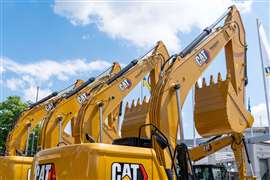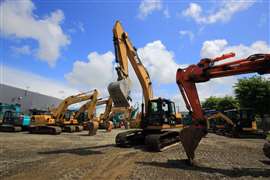Bid for energy efficient buildings
05 May 2009
A global study carried out by the World Business Council for Sustainable Development (WBCSD) has revealed how energy use in buildings can be cut by -60% by 2050.
This, according to the WBCSD, is essential to meeting global climate change targets; however, immediate action is required in order to make the change.
The WBCSD's report, Transforming the Market: Energy Efficiency in Buildings, which is the result of a four-year, US$ 15 million research project, makes six main recommendations, including, strengthening building codes and energy labelling for increased transparency; using subsidies and price signals to incentivise energy-efficient investments and encouraging integrated design approaches and innovations.
Developing and using advanced technology to enable energy-saving behaviour, developing workforce capacity for energy saving as well as mobilising an energy-aware culture, complete the WBCSD's recommendations.
The study looked at the barriers which prevent lower energy use, based on the "most detailed view ever" of the current state of energy demand in buildings. A computer model was developed for analysing energy use for millions of existing and new buildings and projecting it out to 2050.
Björn Stigson, president of the WBCSD said, "Energy efficiency is fast becoming one of the defining issues of our times, and buildings are that issue's ‘elephant in the room'. Buildings use more energy than any other sector and as such are a major contributor to climate change."
He added calling for a major, coordinated and global effort now will help cut greenhouse gas emissions and stimulate economic growth at the same time.
The report has the backing of 14 global companies including Skanska - the only construction company involved in the project.
Skanska's president and CEO, Johan Karlström said, "Unless there is immediate action, thousands of new buildings will be built without any concern for energy efficiency and millions of existing, inefficient buildings using more energy than necessary will be standing in 2050."
Skanska is currently applying environmental certification systems such as the European Union's (EU) GreenBuilding and the US's LEED (Leadership in Energy and Environmental Design) to reduce energy use in buildings and has also implemented the Nordic Swan label for its Uniqhus residential concept in Sweden.
The statement added that later this year Skanska and the other companies behind the research study will commit to further actions for energy efficiency through a company manifesto linked to the report.






